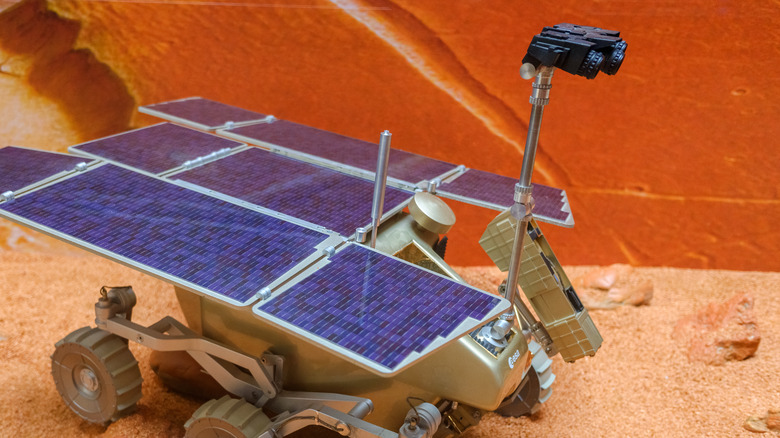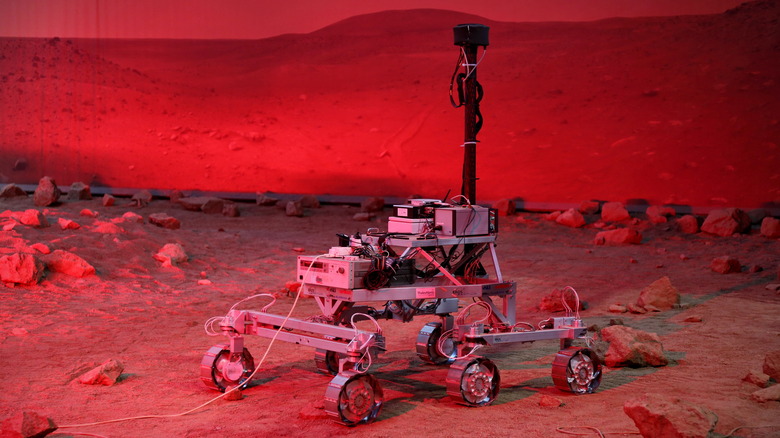ExoMars Launch Faces Delay Nobody Saw Coming
The Russian invasion of Ukraine, described by European Union officials as a "barbaric attack" on "a free and sovereign country", is having broad ramifications on how the international community deals with Russia, including in terms of space missions. The EU has imposed sanctions on Russia, and Russia has responded by, among other things, halting all launches of its Soyuz rockets from Europe's spaceport in French Guiana.
In addition, international space agencies have been considering how to handle partnerships with Russian space agency Roscosmos in light of the invasion. There are open questions about the future of the International Space Station, of which Russia is a partner, especially as the head of Roscosmos, Dmitry Rogozin, recently threatened to withdraw Russian support from the station (via SpaceNews). He even threatened to let the station spiral into an uncontrolled deorbit, but this threat has not been taken seriously by most in the space community (via The Conversation).
One big issue for the European Space Agency (ESA) to consider was its ExoMars program, which was a partner program with Roscosmos which intended to send an orbiter and lander to Mars. The mission was to consist of the ESA-built Rosalind Franklin rover, named after the pioneering chemist, and the Russian-built Kazachok lander and descent stage. It was set to launch this year, in summer 2022, but it now looks as if that launch won't go ahead.
"Regarding the ExoMars programme continuation, the sanctions and the wider context make a launch in 2022 very unlikely," ESA wrote in a statement. The agency didn't specify exactly what will happen next for the program, however, as it went on to say, "ESA's Director General will analyze all the options and prepare a formal decision on the way forward by ESA Member States."
A delay of at least two years
ESA specifically stated that this was in response to Russia's actions in Ukraine. "We deplore the human casualties and tragic consequences of the war in Ukraine," the agency wrote. "We are giving absolute priority to taking proper decisions, not only for the sake of our workforce involved in the programmes, but in full respect of our European values, which have always fundamentally shaped our approach to international cooperation."
The launch of the rover and lander had previously been scheduled for summer 2020, but it had to be postponed due to the covid pandemic. Launches to Mars are generally only possible every 26 months, when the orbits of both Mars and Earth bring the planets to their closest points. So after the delay in 2020, if the rover doesn't launch this year it will have to wait until 2024, which will be extremely costly.
Some space fans are holding out hope that the rover portion of the mission could still launch this year if another launch provider is found, but it's not a simple matter of separating the ESA rover from the Roscosmos lander. Parts of the Rosalind Franklin rover, such as the radioactive heating units, are provided by Roscosmos (via ESA). Therefore, going ahead with the launch without Roscosmos support might require considerable reworking of the rover hardware.

